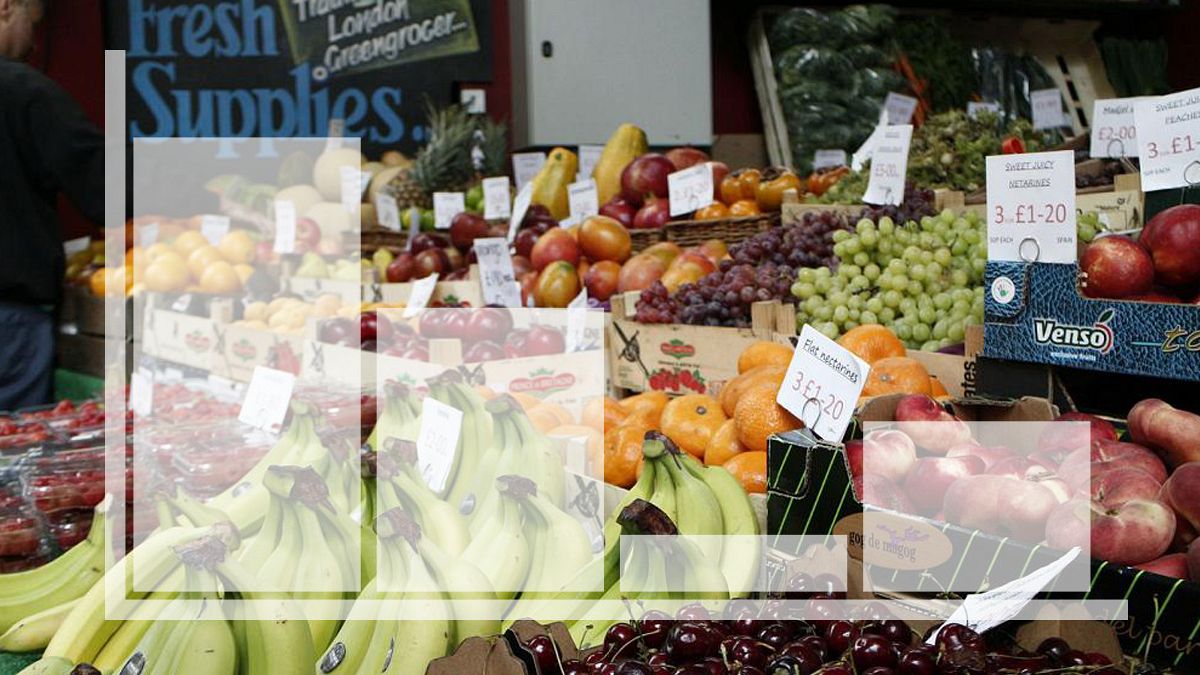Euronews takes a look at which of your favourite fruit and vegetables might be impacted by Brexit negotiations
Consumers in the UK could see a rise in the price of their favourite fruit and vegetables following the UK’s vote to leave the European Union.
The UK heavily depends on the EU for fruit and vegetable imports. According to available data from 2015, Spain and the Netherlands account for almost 70 percent of fresh vegetable imports to the UK.
“There are huge imports of fruit and vegetable from the EU to the UK and little or no exports from the UK to the EU,” said David Hughes, a food business professor at Imperial College London.
And because the UK’s fruit production is quite poor compared to its EU neighbours, it relies heavily on southern European countries – especially Spain – to provide it with fruits that need warm weather to grow. This has been driven largely by large increases in imports of non-native foods to the UK, such as oranges and tomatoes.
“The UK is a huge importer of fruit year-round because the UK is a northern country and doesn’t have enough heat units to grow many fruits such as grapes, peaches, nectarines,” said Hughes.
According to food statistics released by the UK government, the category ‘fruit and vegetables’ has the largest trade deficit. In 2016, imports reached 10.3 billion pounds (11.60 billion euros) while exports were 1.1 billion pounds (1.24 billion euros), resulting in a trade gap of 9.2 billion pounds (10.36 billion euros).
Out of the EU countries, Spain is the main supplier of vegetables and fruits to the UK with the Netherlands coming in second.
So which fruit and vegetables will be the most affected? Euronews has taken a look at the fruit and vegetable groups most imported from the European Union to the UK by value in euros.
Berries
Fresh strawberries, raspberries, and blackberries make up the major fruit group imported to the UK from the European Union. The top berry supplier is Spain, with a supply that makes up 37.5 percent of total berry imports.
Citrus fruit
Oranges, mandarins, clementines, grapefruit, and lemons are also heavily imported into the UK from Spain, which dominates the citrus market with 38.9 percent of the total trade.
Apricots, cherries, and peaches
Spain once again is the UK’s top supplier of this fruit group with more than half of total imports.
Apples and pears
France takes the lead on apples and pears imports and is responsible for more than a quarter of the produce imported by the UK.
Tomatoes
The Netherlands provides the bulk of tomatoes to the UK followed by Spain. 38.2 percent of the total tomato imports come from Netherlands. Spain contributes another 32.4 percent.
Onions, shallots, garlic, and leeks
Spain surpassed the Netherlands not too long ago in the import of the onion vegetable group to the UK. Spain makes up 35.9 percent of the total imports of the onion group while the Netherlands’ contribution fell to 23.7 percent in 2016.
Spain also holds the reign in the cabbage vegetable group and lettuce imports while the Netherlands dominates the imports of carrots and cucumbers.
For now, it remains unclear how much the price of fresh produce coming from the EU will rise. Professor Hughes says that if the country experiences experience a hard Brexit with heavy duty tariff barriers on fruit and vegetables then imports from the EU, particularly from Spain, could go down and the UK’s production of fruit and vegetables would have to increase.
What is certain is that the cost and availability of these food groups will depend on the trade deals that the UK can work out with each member state.
